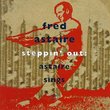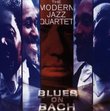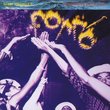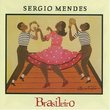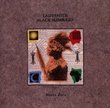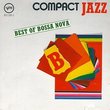| All Artists: Treasury of Library of Cong Title: Treasury of Library of Congress Field Recordings Members Wishing: 0 Total Copies: 0 Label: Rounder / Umgd Release Date: 10/21/1997 Genres: Country, Blues, Folk, Special Interest, Pop Styles: Classic Country, Traditional Blues, Traditional Folk Number of Discs: 1 SwapaCD Credits: 1 UPC: 712136150022 |
Search - Treasury of Library of Cong :: Treasury of Library of Congress Field Recordings
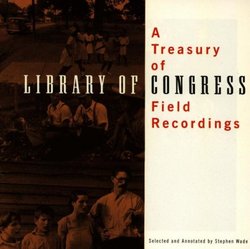 | Treasury of Library of Cong Treasury of Library of Congress Field Recordings Genres: Country, Blues, Folk, Special Interest, Pop
|
Larger Image |
CD DetailsSimilar CDs
Similarly Requested CDs
|
CD ReviewsAmerica singing Jerome Clark | Canby, Minnesota | 06/03/1999 (5 out of 5 stars) "Ever since 1928, the Library of Congress has been recording authentic folk musicians in the field. Eventually, a small number of these recordings were released commercially, first on 78s, then LPs and now CDs (on Rounder's Archive of Folk Culture series). On this disc, banjoist, playwright, and ethnomusicologist Stephen Wade has chosen 30 of the best of the publicly available performances, representing a broad range of styles. All are from the 1930s and '40s, before America's rich folk-song tradition began to collapse under the onslaught of radio and pop music on phonograph records. Every cut here is a small masterpiece, and every one stands up to repeated listening. Among my own favorites is cowboy fiddler Jess Morris's "Goodbye, Old Paint," the earliest known version of this famous frontier waltz; Morris learned it in 1884 from a black Texas cowhand, who in turn picked it up while driving cattle to Wyoming in the 1870s. Pennsylvanian John J. Quinn does a blood-chilling, unaccompanied "Avondale Mine Disaster," and Mississippi bluesman David "Honeyboy" Edwards makes "Worried Life Blues" sound practically like an orchestral piece, though accompanied by no more than his acoustic guitar. Banjo pickers, fiddlers, harmonica blowers, washboard bands, a capella balladeers, church and prison choirs, children's chants and mother's lullabies -- you can hear America singing on this wonderful disc." A Treasury of Library of Congress Field Recordings Jerome Clark | 03/28/2000 (4 out of 5 stars) "I purchased this CD so I could listen to Sea Lion Woman, a song I heard during the final credits to The General's Daughter. The other 29 songs were an added bonus. Some of these songs, recorded in the 30's and 40's, are a real joy to listen to. Also included with the CD is a small booklet telling you about each song. To hear "Pullin' the Skif" and "Shortenin' Bread", only to learn that the young singer died in a hold-up she perpetrated before her twenty-first birthday just grabs the heart." Comfort food for the ears... Betty Boop | Lebanon, TN USA | 08/07/2000 (5 out of 5 stars) "Haunting ballads, stories and lively dance tunes sung by "regular people" (including Woody Guthrie) provide a musical history of rare breadth. If you are looking for slickness and glitz, this CD is not for you. If, on the other hand, you enjoy honest music, are interested in folk history, and perhaps are a closet (or shower) singer yourself, you will enjoy this glimpse into the souls of people whose spirits fill these songs.An added bonus is the booklet that is included. It provides background on the Library of Congress's Folk Archive and the field recordings done by John, Alan, and Elizabeth Lomax in the late 30's to mid-40's. It also gives a short song and artist history for each track. The fact that one child singer died before her 21st birthday makes her song especially haunting.Many of us live comfortably insulated, yuppified, sanitized lives. These recordings remind us where we came from. Most importantly, they demonstrate the power of music, that it feeds our souls and gives us strength. We all have that power to make music. Some of us have just forgotten how to do it, or have been told we should not try to sing or play. These songs help us remember on many levels, and show us that making music is a blessing we are all capable of enjoying."
|

 Track Listings (30) - Disc #1
Track Listings (30) - Disc #1

